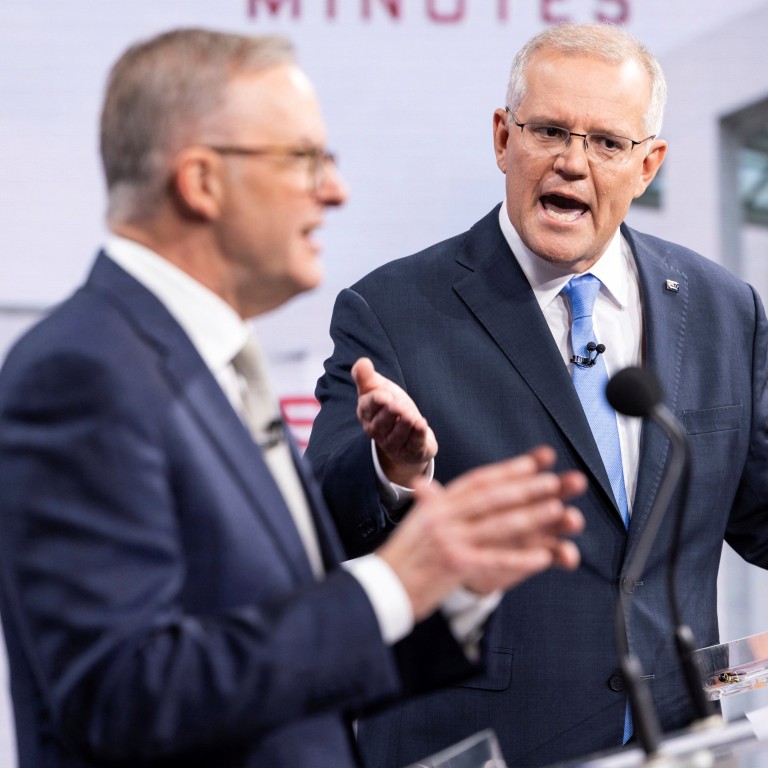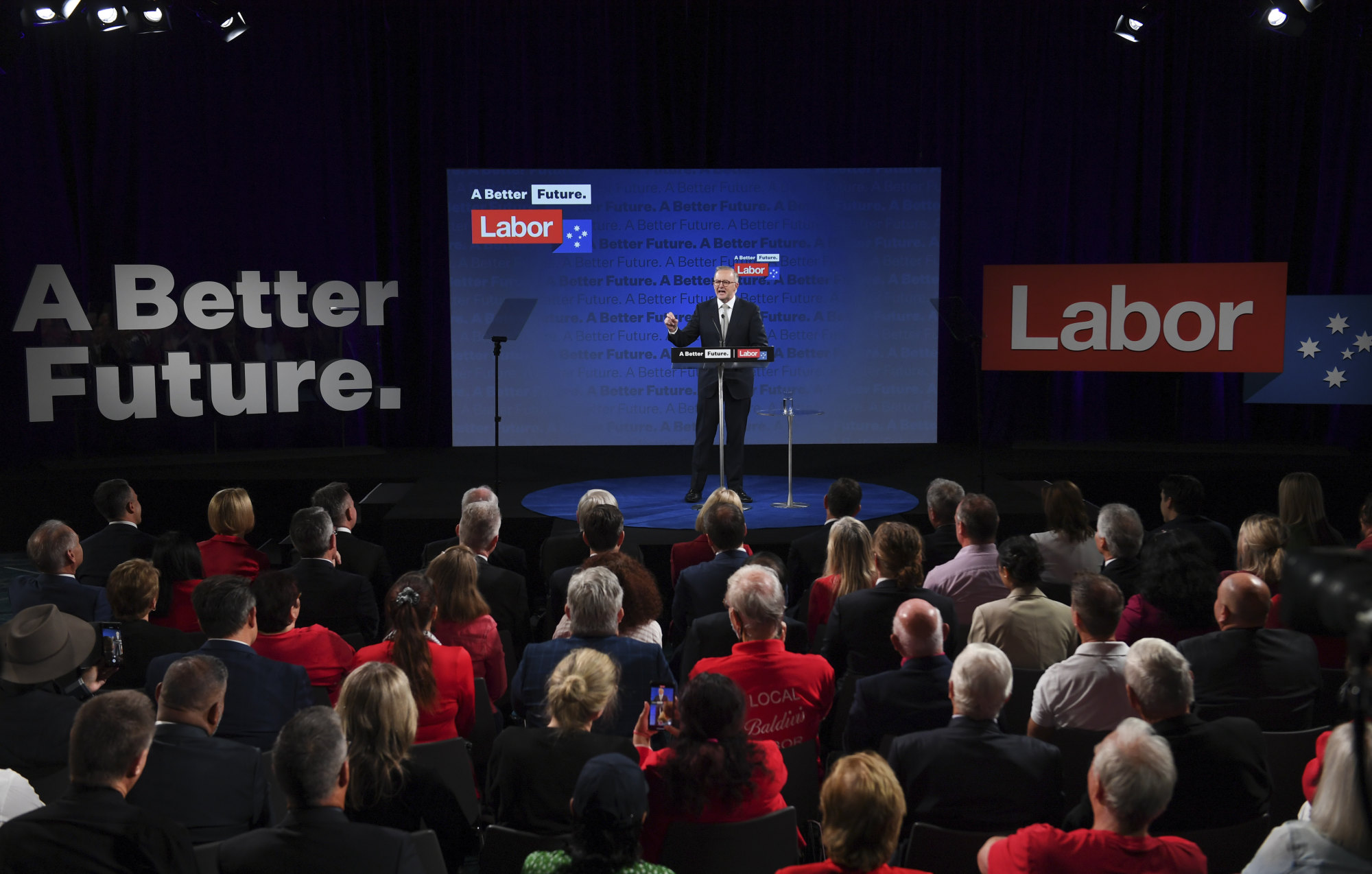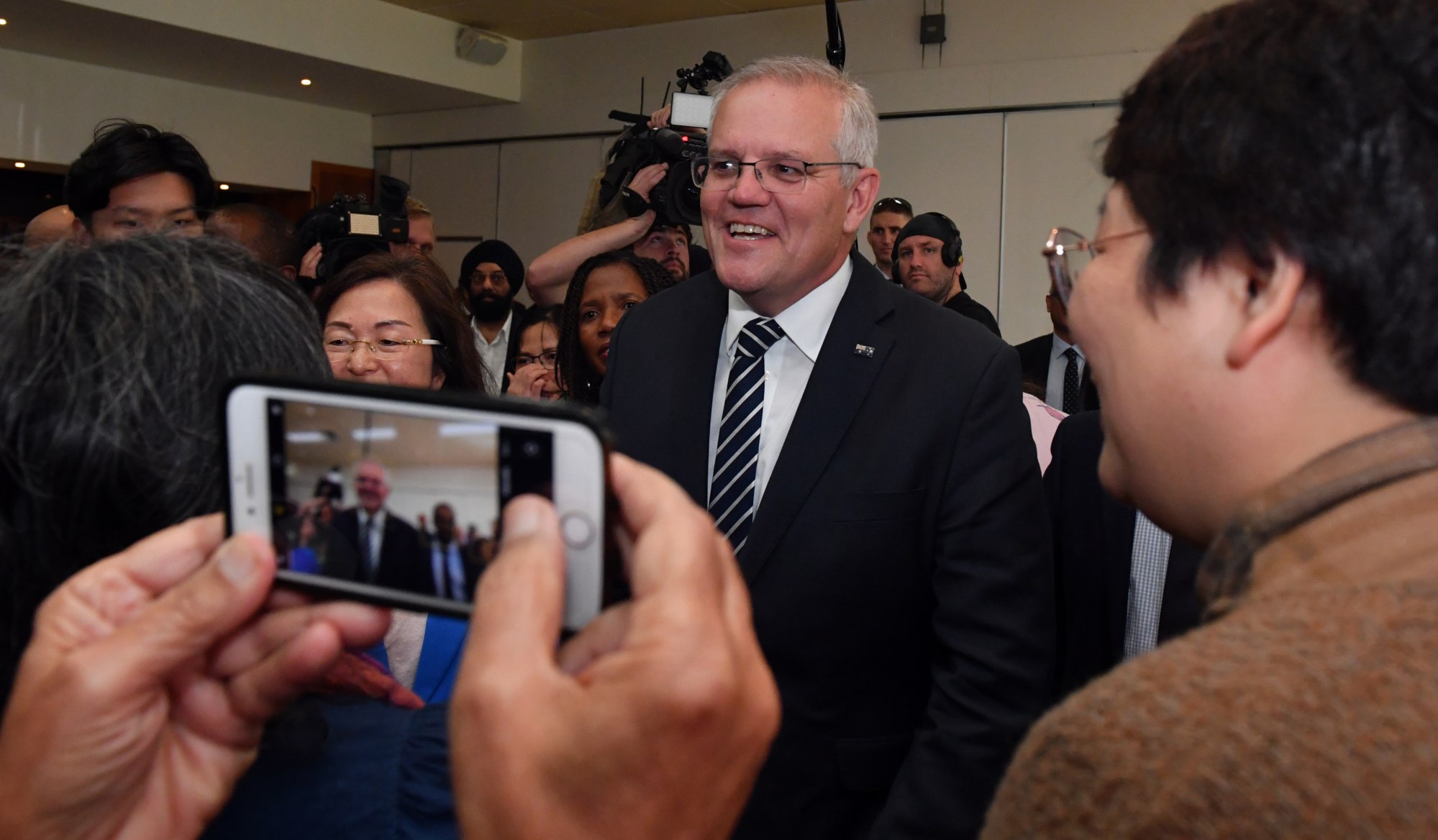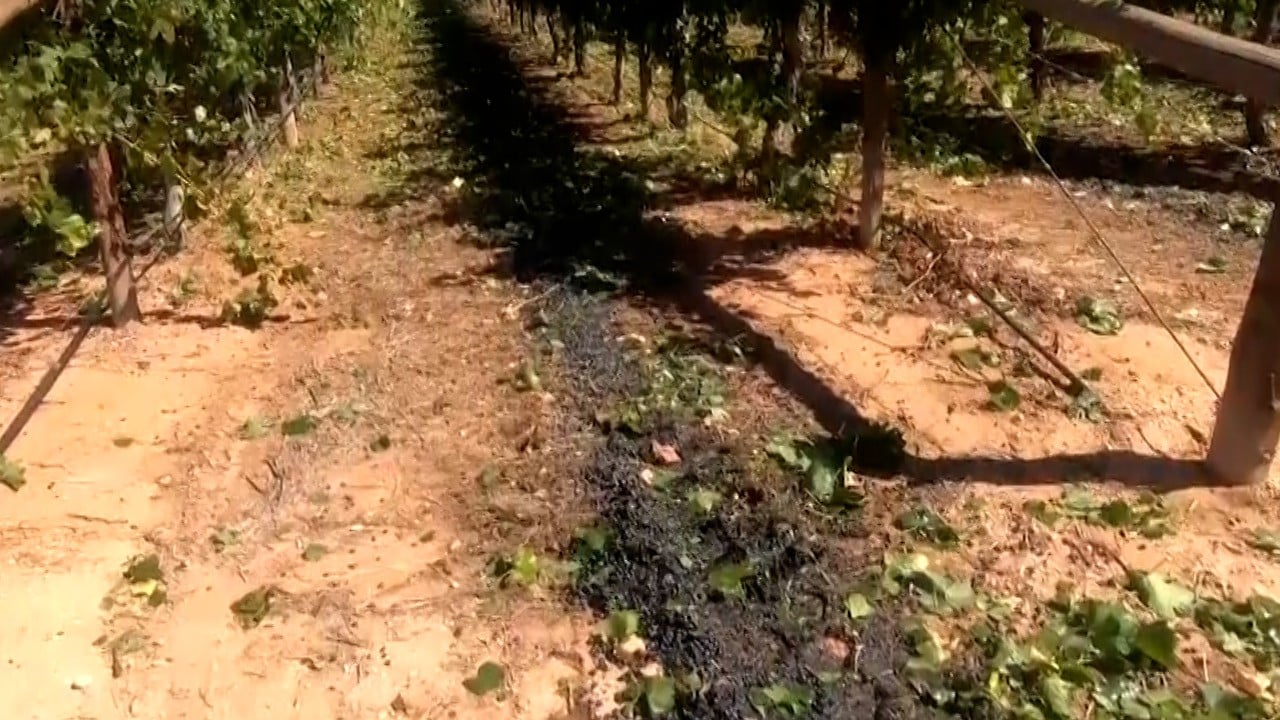
How might Australia’s ties with China and Asean change after the May 21 election?
- While both the ruling Liberal coalition and opposition Labor parties are talking tough on Beijing, analysts say the latter may adopt a ‘less provocative’ brand of diplomacy
- Whoever wins, Australia will need a new policy of engaging with and investing more ‘financially and intellectually’ with Southeast Asia amid its China calculations, observers say
Australia is days away from a federal election on May 21, at a time when security concerns over China’s presence in the Indo-Pacific region are ramping up.
Last week, Labor shadow attorney general Mark Dreyfus said at an election panel debate with other candidates in Sydney that finding common ground with China on shared interests such as climate change was key to striking a reset without compromising Australia’s values and security.
“The reason I mentioned [climate change] is it is an example of a non-defence, but nevertheless very international-national matter, that we can find grounds to talk to China about,” he said, adding that statements from the government about going to war with China reflected how unsophisticated Australia was “in the international world of diplomacy”.
China-Australia tensions, racism fuelling Asian ‘reluctance’ to join politics
His words echoed those of shadow foreign minister Penny Wong, who last year said during a speech in Canberra that while “military capability matters”, it was not enough. Labor says it will rebuild Australia’s diplomatic service.
This may hint at some potential shifts in Australia’s tone with China if the government changes, analysts say.

At the time, former Australian foreign minister Gareth Evans said that aside from the need for the government to acknowledge the legitimacy of a rising superpower like China, both countries should engage in common projects.
The Liberal-National coalition government has not experimented with these ideas – instead turning to the defence-intelligence-security league for its heavy-duty strategies on China, which include boosting Australia’s defence capabilities, increasing partnerships with the Indo-Pacific to counter Beijing and supporting trade diversification.
In a bid to compete strategically with the ruling coalition, however, Labor is also talking up the need to be “tough” on an increasingly assertive China.
“Labor shored up any perceived softness by shuffling as close as it could to the government’s position on China. ‘No daylight here’ was the message,” said Allan Gyngell, national president of the Australian Institute of International Affairs and ex-senior adviser to former Australian Prime Minister Paul Keating. He added that Labor’s only variation was a promise to act on climate change.
There’ll be little scope to bring the relationship back to where it was, unless Canberra steps back from its close alignment with Washington’s containment strategy towards Chin
But there will be a point of difference if Labor wins the election, and that lies with the execution of its foreign policy. The party – which has widened its lead against the coalition according to the polls – will use more moderate methods to deal with China, as Dreyfus and Wong have hinted, observers say.
“We might expect a less provocative tone from a Labor government, including less overt talk of war, which might offer opportunities for a gradual resumption of high-level contact,” said international relations and intelligence analyst Hugh White, an emeritus professor of strategic studies at Australian National University.
“But there’ll be little scope to bring the relationship back to where it was, unless Canberra steps back from its close alignment with Washington’s containment strategy towards China, and there is no sign that Labor plans to do that,” he said.
Morrison v Albanese: who’s leading Australia’s race, and who’s tougher on China?
A study by the Australia-China Relations Institute (ACRI) in March confirmed these observations.
ACRI said both Labor and the coalition government shared similar views on national security and in their approaches to China.
For example, both had labelled Beijing’s trade sanctions against Australia “economic coercion”, and Labor has said it would uphold the government’s A$70 billion (US$48.8 billion) increase in defence spending.
ACRI senior researcher Elena Collinson said evidence showed Labor would enact these policies by “placing a greater emphasis on diplomacy, placing the Department of Foreign Affairs and Trade back in the driver’s seat when it comes to the implementation and management of Australia’s China policy”.
This contrasted with the ruling coalition, which recently pivoted to viewing the world in “stark ideological terms” and “as one understood through the prism of liberal democracies versus authoritarianism”, ACRI said.
The think tank added that the coalition had weaponised national security to create the appearance of division and buttress its own credentials as an able steward of foreign policy.
Can India fill the China-shaped hole in Australia’s economy?
Richard Maude, policy executive director at the Asia Society, said Labor hoped “a more controlled public messaging on China will help lower the temperature of the bilateral relationship”.
Allan Behm, head of the International and Security Affairs Programme at The Australia Institute in Canberra, said Labor “knows rebuilding an adult relationship with China is key to repositioning Australia as a serious international player”.
But there is every chance the coalition will win, and if so, Behm said the recalibration of relations with China would be an uphill task, if it happens at all, especially since the coalition was so hard-wired into “the dependence upon and subservience to the US”.

Analyst White expected the China relationship to be permanently frozen and even deteriorate further.
“Both Prime Minister Scott Morrison and Defence Minister Peter Dutton see political advantage in bad relations with Beijing, and appear unconcerned by the long-term risks that this might pose to Australia because they remain confident that American pressure on China will force Beijing to change its tune,” he said.
Whichever the case, how the next government navigates Australia’s relationship with China would be key, for in the absence of independent discussions with Beijing, Australia had become less relevant to its Southeast Asian and Pacific neighbours as well as to its allies, Gyngell said.
“It must rely on others to make its points in China, although it is, of course, only Beijing which stands in the way of ministerial meetings,” he said. “The new government must find a new language to speak to Southeast Asia, for example, as the ‘binary description of a global conflict between autocracies and democracies’ does not work in Southeast Asia.”
Japan steps up Pacific engagement amid China-Solomons pact concerns
Melissa Conley Tyler, who leads the Asia-Pacific Development, Diplomacy & Defence Dialogue, said Labor had already put forward engagement with Asia as one of its strengths.
Maude said Labor has pledged to invest more “financially and intellectually” in Southeast Asia and the Southwest Pacific, arguing Australia’s regional engagement was critical to managing the China relationship.
Director of Griffith Asia Institute Caitlin Byrne said in another Asia Society brief that Labor was looking at boosting ties with Indonesia, Singapore, Malaysia and Vietnam.
If the current government is returned, it would likely deepen its relations with Asean following last year’s establishment of a Comprehensive Strategic Partnership with the bloc, Byrne said, Although it may face some challenges after the clumsy execution of Aukus, the trilateral security pact with Britain and the United States that confused and aggravated a number of regional players.


